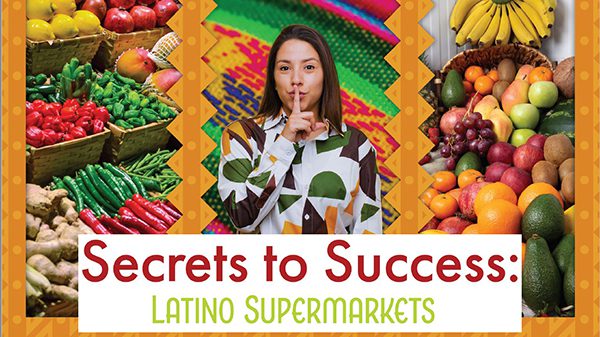There’s little doubt that Latino supermarket retailers are ahead of the larger traditional players in winning hearts and minds.
As Jorge Vázquez, president of Houston, TX-based importer/exporter Latin Specialties, LLC, BB #:165092 sees it, their biggest advantage is flexibility.
“The rigid chain of command and complicated ordering systems at big box retailers is both their strength and their weakness,” Vázquez says. “As along as the smaller Latino chains remain more flexible than their larger competitors, they will continue to thrive in the retail environment.”
He points to the recent flurry of panic-buying following the outbreak of Covid-19 in the United States. When the supply chain came to a grinding halt, many of the big chains found themselves with empty shelves.
Latino retailers, he says, could more easily pick up the phone and change an order, switch sizes, or request substitutions. “Whenever they get into a pickle, they don’t have any qualms about moving up or down,” he says. “Latino retailers are scrappy, and that’s why they survive.”
How long this will last is anybody’s guess, as the major supermarket, big box, and club warehouse players are learning from their smaller competitors.
Chains like Publix and multiple banners from Kroger and Albertsons are paying attention to what sells at a Northgate González or a Fresco y Más, cherry-picking the moneymakers and then putting them in their own product lineup.
If Latino retailers don’t adapt and reinvent, embrace new technologies, beef up customer service, and diversify, as many have been forced to do in the wake of the pandemic, their success could diminish.
“The challenge for larger retailers is that many times they need to appeal to a wider range of shoppers and can’t focus down to the level of a dedicated Hispanic retailer,” says Brian Numainville, principal at the Lake Success, NY-based Retail Feedback Group.
“However, they can also look at the highest demand products and ensure they carry those items to appeal to the Hispanic shoppers present in their trade areas.”
Imitation may be the sincerest form of flattery, but it’s also a powerful tool in the supermarket business. Still, as Carlos Villa, president of Nogales, AZ-based Higueral Produce, Inc. BB #:192110 points out, Latino retailers have an edge, if only because they know their customers.
“At the end of the day, the Latino consumer is looking for taste and a good price, not food for a photo shoot,” he says. “As long as Latino retailers keep providing that, they’ll be around.”
This is a multi-part feature adapted from a supplement to the September/October issue of Produce Blueprints magazine.



